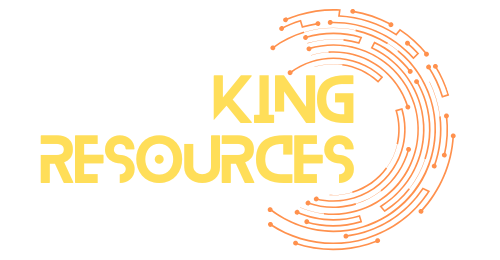Imagine sipping coffee on a sun-soaked porch while the waves crash nearby. Sounds dreamy, right? Owning a vacation home isn’t just a pipe dream; it’s a savvy investment that can turn your weekends into mini getaways. But before you start packing your bags, you’ll need to navigate the world of vacation home financing.
Table of Contents
ToggleUnderstanding Vacation Home Financing
Understanding vacation home financing involves knowing various loan options available to buyers. Investors looking to purchase a second property benefit from this knowledge.
Types of Vacation Home Loans
FHA loans provide an affordable option, requiring a low down payment. Conventional loans, with their flexibility, suit many buyers. VA loans offer benefits for eligible veterans, including no down payment options. Additionally, Jumbo loans cater to those buying high-value properties that exceed conventional loan limits. Each loan type has unique features that can significantly impact financing decisions.
Eligibility Requirements
Lenders assess several eligibility requirements before approving vacation home loans. Credit scores typically need to be above 620 for most lenders. A stable income and employment history demonstrate financial responsibility. Lenders often consider debt-to-income ratios, usually preferring a ratio under 43%. Down payments generally require at least 10% for investment properties, although specifics can vary. Meeting these criteria strengthens the likelihood of securing financing.
Choosing the Right Financing Option



Selecting the right financing option is crucial for purchasing a vacation home. Several choices align with different financial goals and circumstances.
Fixed-Rate Mortgages
Fixed-rate mortgages offer stability with consistent monthly payments over the life of the loan. Borrowers can enjoy predictability since interest rates remain unchanged. Many buyers appreciate this feature, especially in fluctuating markets. Lenders typically offer terms of 15 to 30 years, allowing for various payment strategies. Choosing a fixed-rate mortgage becomes beneficial when interest rates are low. It protects the buyer from future rate increases, enhancing long-term budgeting.
Adjustable-Rate Mortgages
Adjustable-rate mortgages (ARMs) can provide lower initial interest rates, making them appealing for some buyers. Borrowers enjoy reduced payments during the initial fixed-rate period, often ranging from 3 to 10 years. After this period, rates adjust based on market conditions, which may lead to higher payments. Understanding these changes is essential for long-term financial planning. ARMs work well for those planning to sell or refinance before the adjustment period ends. Evaluating personal circumstances and future plans helps determine whether an ARM is the right choice.
The Application Process
Understanding the application process for vacation home financing is essential for potential buyers. It involves several steps to ensure successful loan approval.
Preparing Your Finances
Reviewing finances is a critical first step. Assess total income, expenses, and other financial obligations to determine affordability. Buyers benefit from maintaining a credit score above 620, as this can increase approval chances. Creating a budget that accounts for mortgage payments and associated costs will aid in long-term planning. Additionally, diversifying income sources enhances financial stability, making it attractive to lenders. Prioritizing savings for a down payment shows commitment and responsibility. Lastly, tracking debt-to-income (DTI) ratios, preferably under 43%, strengthens the overall financing position.
Required Documentation
Gathering necessary documentation constitutes another important stage in the application process. Lenders require several key documents to evaluate financial standing. Provide proof of income through recent pay stubs, W-2 forms, or tax returns. Showing consistent employment history is beneficial, as it indicates reliability. Submit bank statements from the past few months to verify available funds. Documentation of existing debts, including credit card statements and loan balances, helps calculate DTI ratios. Finally, a purchase agreement for the vacation home signals serious intent, making the process more streamlined.
Factors to Consider Before Financing
Understanding the key factors before financing a vacation home is essential. Buyers must evaluate specific criteria to make informed decisions.
Location and Market Trends
Location significantly impacts property value and investment potential. Researching local market trends provides insights into past and projected growth rates. Coastal areas typically see high demand due to tourism. Urban centers attract buyers seeking convenience and amenities. Analyzing historical price trends helps predict future values, allowing buyers to buy at favorable times. Properties in desirable neighborhoods often appreciate faster, enhancing long-term investment return.
Rental Income Potential
Evaluating rental income potential proves crucial for financing decisions. Buyers should consider local rental market rates to estimate expected income. Short-term rentals have become increasingly popular, offering higher revenue in vacation hotspots. Analyzing occupancy rates and average rental prices allows for a clearer picture of profitability. Calculating potential expenses, such as maintenance and property management fees, ensures realistic income projections. Understanding local regulations governing rentals also protects against unexpected fines or restrictions.
Owning a vacation home can be a rewarding venture that enhances leisure time and serves as a smart investment. Understanding the nuances of vacation home financing is essential for making informed decisions. By carefully evaluating loan options and meeting eligibility criteria, buyers can increase their chances of securing the right financing.
It’s also crucial to consider personal financial situations and future plans when choosing between fixed-rate and adjustable-rate mortgages. With thorough preparation and research into local markets, potential buyers can navigate the application process with confidence. Ultimately, a well-planned approach to vacation home financing can lead to a fulfilling ownership experience and lasting memories.









